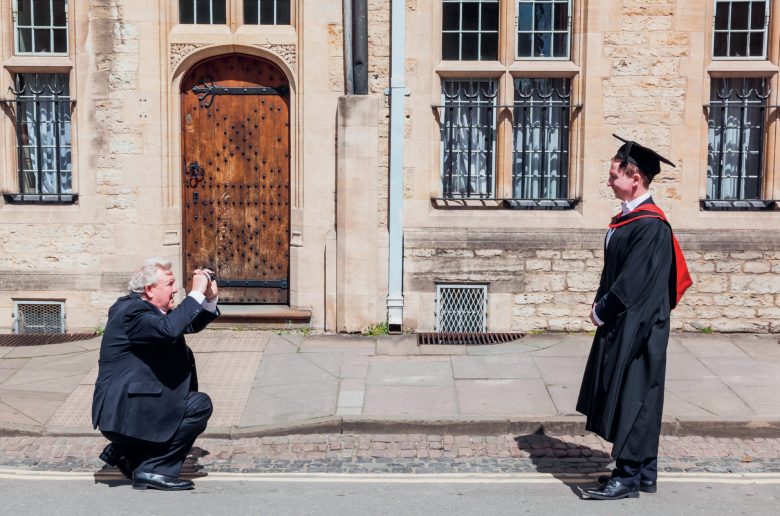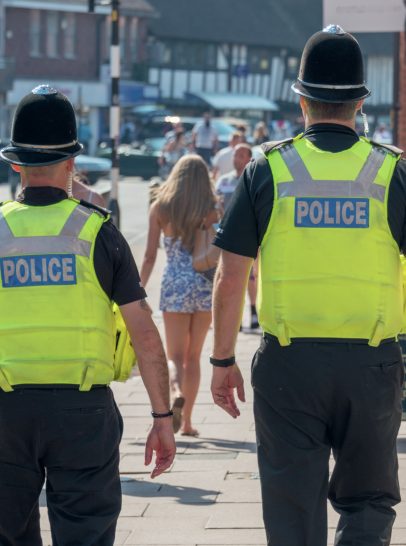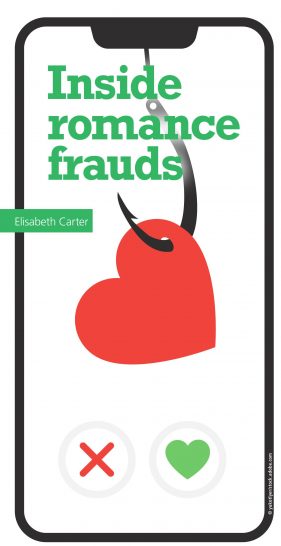The case of ‘political correctness’ and ‘wokeism’
A new moral panic?
Are we witnessing a new moral panic over political correctness/wokeism? Is there really a threat to free speech from a new folk devil — the snowflake?
EXAM LINKS
■ Media
■ Culture and Identity
According to popular media coverage, ‘political correctness’ (PC) and ‘woke’ are widespread, dangerous phenomena that threaten free speech in the contemporary world. But just because this message is pervasive, does not mean that it is true. As sociologists, we can ask a range of relevant questions here.
First, does the evidence support the notion that free speech is under threat and that young people are so fragile that they get easily offended and increasingly wish to ‘cancel’ those whom they consider do not hold the right views?
Second, what are the consequences of this widespread critique of PC/woke on the perceived legitimacy of social justice campaigns, such as those associated with the #MeToo and Black Lives Matter movements?
In this article, we will consider the above by asking whether we are witnessing a new kind of moral panic.
There is little doubt that political correctness now typically carries negative connotations.
What is political correctness/wokeism?
It may be a common phrase, but the concept of PC remains unclear and indeed contested. A few writers embrace the term to signal their belief in the importance of being inclusive. More commonly, however, it is used to warn us of a dangerous new culture that is threatening free speech and plain honest speaking.
In the process, a contrast is often drawn between political correctness and ‘common sense’, with the media routinely ridiculing and belittling political correctness. Here are two examples: the lampooning of an analysis of a children’s book and the response of a supermarket to a complaint.
‘World’s gone PC mad…Snowflakes: Mr Clever is a sexist…Flakes have slammed “sexist” Mr Men character Mr Clever for “mansplaining” an iconic bridge to “stupid” blonde Little Miss Curious (Daily Star, 8 May 2019)’
‘Waitrose has apologised for “racist” chocolate easter ducklings after it received complaints that the dark one was named “ugly” […] Many Twitter users have reacted angrily to the supermarket’s decision to remove the chocolate ducklings suggesting it has given in to excessive political correctness. “PC gone mad… yet again”, one person wrote (The Independent, 10 April 2019)’
There is little doubt that political correctness now typically carries negative connotations. Consequently, few people identify themselves as supportive of PC. The same is also true of a related and increasingly
widely used concept: ‘woke’. Though initially coined to refer to awareness of racial injustice, this concept is now typically used not as a form of self-identification but as an insult. Examples of this abound. The following headlines give just a taste:
‘The woke left is the new Ministry of Truth…Good people are silenced in an Orwellian nightmare where a tyrannical minority decide what we’re allowed to say (The Times, 11 July 2020)’
‘The march of wokeism is an allpervasive new oppression (The Times, 7 November 2020)’
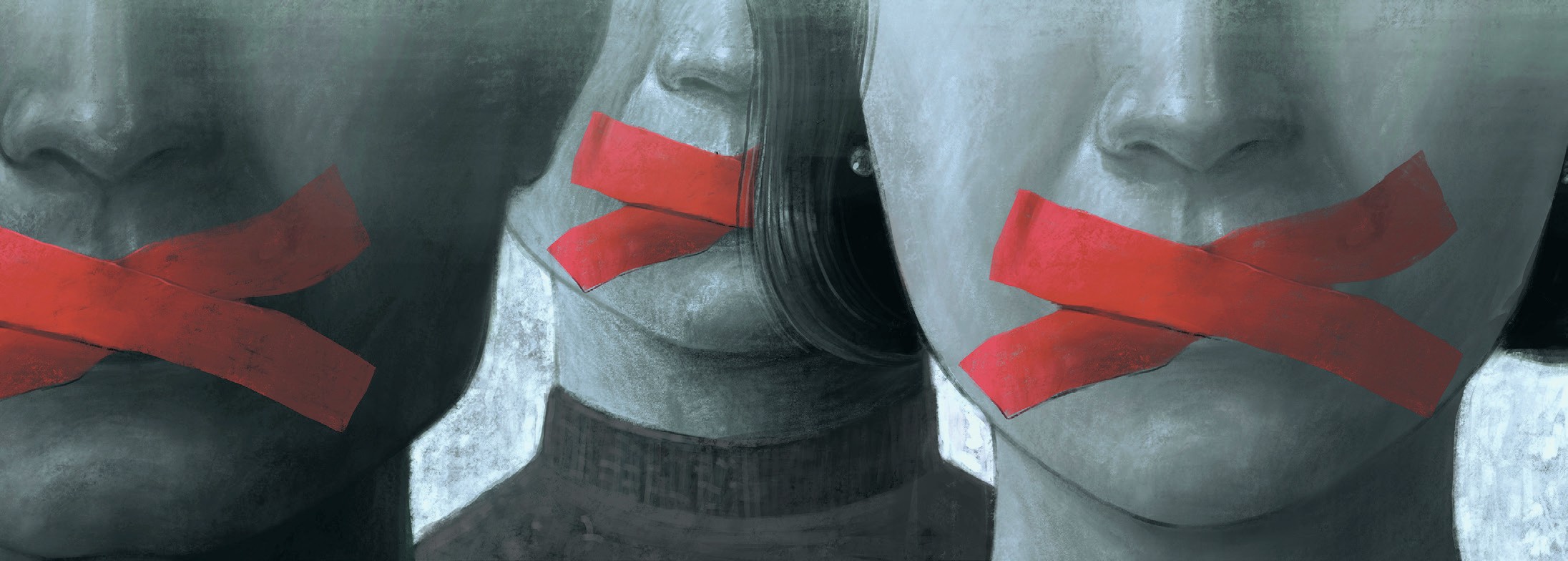
Campaigning to resist PC/wokeness
A recent example from the world of politics is especially revealing. In a speech to a rightwing think-tank in the USA, Conservative party chairman Oliver Dowden spoke at some length about the apparent dangers of woke. His speech illustrates how opposition to PC and wokeness is used by some politicians to belittle the efforts of social justice advocates to promote, for example, trans rights or the decolonisation of the educational curriculum.
Extracts taken from Dowden’s speech were published in the Guardian under the headline ‘Tory party chairman says “Painful woke psychodrama” weaking the West’. The article goes on to quote Dowden as saying that ‘“woke” ideology is weakening the West when it is facing threats from aggressive states such as Russia’ and that
‘a West “confident in its values” would not be obsessing over pronouns or indeed seeking to decolonise mathematic […] “Woke” ideology is now “everywhere” […] It goes by many names. In Britain, its adherents sometimes describe themselves as “social justice warriors”. They claim to be “woke” […] but wherever they are to be found, they pursue a common policy inimical to freedom. (Guardian, 14 February 2022)’
There is the view that younger generations are very fragile and demand to be protected from ideas that they find offensive
Both ‘political correctness’ and ‘wo are rarely defined. Instead, they are used to depict ‘the Other’, often in a disparaging way, and to suggest that there are powerful forces suppressing inconvenient truths which are steadily eroding our freedom. A recent book which characterises our society as woke, urges us to ‘wake up’ before it’s too late:
‘We’ve become a timid, mute, fearful society in which everyone must walk on constant eggshells for fear that they will be next for the social media pile-on and politically correct execution. (Morgan 2020)’
This characterisation of PC and woke is highly influential and it clearly resonates with many powerful people.
Snowflakes
While concern with political correctness has ebbed and flowed, there is little doubt that the concept has made a comeback in the last decade, especially among its conservative critics. Despite continuities in perceptions of the threat posed by PC, the rediscovery of political correctness takes a somewhat different form from that predominant in the 1990s and early 2000s.
The distinctiveness of the threat from PC in its modern guise, according to critics, is twofold: a belief that freedom of speech, which should be absolute, is under grave threat; and a belief that younger generations (notably millennials, and especially their successors, Generation Z) are fragile ‘snowflakes’ who are keen to be protected from offensive speech.
The threat to free speech is deemed so severe that in the UK a Free Speech Union has recently been created, which claims that free speech is the bulwark on which all our other freedoms rest, yet it is currently in greater peril than at any time since the Second World War.
Alongside the belief that free speech itself is threatened is the view that younger generations are, as a result of being brought up in a safety-first culture, very fragile and demand to be protected from ideas that they find offensive. Claire Fox, a British right-wing journalist and politician, is often credited with being the first person to talk of ‘Generation Snowflake’:
‘Barely a week goes by without reports of something “offensive” being banned from campus […] This all-pervading sense of grievance, displayed by so many students, is now beginning to cause serious anguish for older commentators, who look on with horror at the increasing evidence that young people have become dangerously thin-skinned. (Fox 2016)’
Cancel culture
According to those critical of PC, the speech crisis has led to the development of ‘cancel culture’, a modern form of ostracism whereby people who speak out against fashionable (usually left-wing) positions are abused online and may even lose their jobs. In every case, it is argued, the pattern is the same:
■ An academic deemed to be conservative gets ‘called out’ by a leftist group or by students.
■ The Twitter mob piles in.
■ Mainstream media outlets then amplify the story.
■ The relevant authorities capitulate and the non-PC offender is ‘cancelled’.
But is this actually happening? Here is where we can usefully turn to the sociological concept of ‘moral panic’.
What are moral panics?
Concepts developed by sociologists sometimes get taken up by journalists and politicians and thus gain a wider currency. One such concept is that of moral panic. It first came to prominence in 1974 with the publication of Folk Devils and Moral Panics. In this pioneering book, Stan Cohen argued that the sensationalised coverage of the activities of mods and rockers on an Easter bank holiday weekend in 1964 set in motion a moral panic whereby these two groups were singled out as folk devils whose behaviour was seen as a direct challenge to cherished values and a threat to social order.
Since then, many other moral panics have been identified, often involving young people. The question I wish to address here is whether it makes sense to apply the concept of moral panic to the case we are exploring: political correctness or wokeness and the threat to free speech from snowflakes.
We can distinguish five features of a moral panic (Goode and Ben-Yehuda 2009):
■ Concern about a potential threat.
■ Hostility or moral outrage towards the group (folk devil) who embody this threat.
■ Consensus or widespread agreement, at least among elite groups in the news media and politics, that the threat is serious and something should be done about it.
■ Disproportionality, i.e. public concern is out of proportion to the real harm being caused.
■ Volatility, i.e. the panic appears and disappears quickly and without warning, often after new laws or policies have been enacted.
A moral panic over PC/wokeness?
Let us take each feature from the list above in turn and apply it to issues surrounding PC/woke.
First, survey data does indicate public concern that freedom of speech is under threat, with there being considerable agreement expressed with the following statements: ‘There are many important issues these days when people are simply not allowed to say what they think’, and ‘Too many people are too easily offended these days over the language that others use’ (Pilkington 2022).
Second, examples of hostility towards snowflakes can readily be found. Here is a tweet from the culture secretary, Nadine Dorries: ‘Left-wing snowflakes are killing comedy, tearing down historic statues, removing books from universities, dumbing down panto, removing Christ from Christmas and suppressing free speech’ (17 December 2017). It is doubtful, however, whether the hostility shown towards snowflakes is of the same order as that shown towards other folk devils, such as young working-class violent males or asylum seekers.
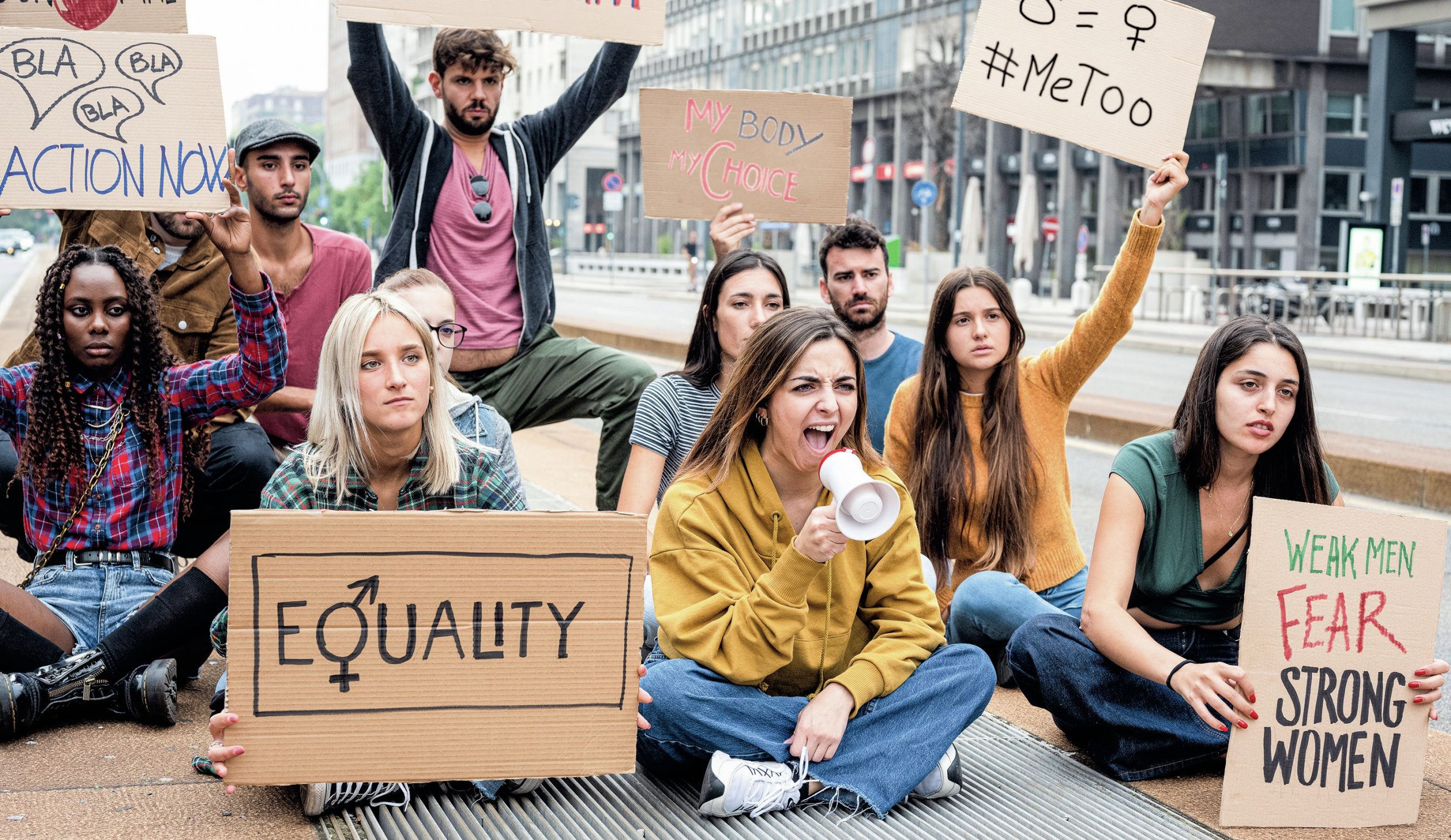
Third, consensus that something should be done about the threat to free speech is evident in the fact that the news media, egged on by senior politicians, frequently identify political correctness and wokeness as a serious threat both to the nation’s cultural and historical heritage and to cherished values, including free speech. This agreement that something should be done in fact culminated in new legislation being announced in 2021 to protect national monuments and strengthen free speech and academic freedom at universities.
Fourth, and most importantly, the concern over the threat to free speech (and indeed the other phenomena identified by Dorries) embodied by snowflakes is vastly inflated, so disproportionality is manifest. There is little evidence in fact that free speech and academic freedom are under threat. On the contrary, a BBC reality check found that since 2010 there had been only seven student complaints about course content being in some way offensive or inappropriate — four have resulted in action being taken. There were six occasions on which universities cancelled speakers because of complaints, and no instances of books being banned or removed. A parliamentary crossparty investigation had come to a similar judgement: ‘press accounts of widespread suppression of free speech are clearly out of kilter with reality’ (Pilkington 2022).
Finally, we come to the question of volatility. Concern about political correctness or wokeness at one level is not new, but this concern has waxed and waned, with the focus of concern changing over time and new folk devils, such as ‘snowflakes’, suddenly emerging.
So, what can we conclude? When we examine each attribute of a moral panic in turn, we discover in all cases (with the partial exception of the second attribute) there is evidence that we are witnessing a new moral panic over the threat posed by political correctness and wokeness to cherished values, most notably to free speech.
There is little evidence in fact that free speech and academic freedom are under threat
Conclusion
With regards to the possible existence of a cancel culture, we should note the following:
■ ‘Cancelling’ itself is not a new phenomenon, but social media have eroded the distinction between private and public space so that cancelling can now go viral.
■ Cancelling does not mean silencing, and it is extremely rare for individuals to lose their job as a result of being cancelled.
■ Contrary to the view propagated by PC critics, cancel culture is by no means a purely left-wing phenomenon. For example, literature professor, Corinne Fowler, who produced a recent report on the links between National Trust properties and colonialism and slavery, was personally targeted. Along with the National Trust itself, she was ‘called out’, accused of ‘wokery’ and vilified online.
We are frequently told today that political correctness and wokeness are pervasive and threaten cherished values. These terms are rarely defined but typically carry negative connotations. A new moral panic has emerged in the last decade over political correctness/wokeness and the threat to free speech — athreat exacerbated by snowflakes. Moral panics typically serve to discredit those who are viewed as the relevant folk devil. Accusations of ‘wokeness’ exhibited by ‘snowflakes’ may be a convenient way for those who oppose moves towards social justice, and who feel that such moves threaten them, and who aim to marginalise those who support movements such as #MeToo and Black Lives Matter. This is clearly evident in the speech given by the Tory Chair quoted above in the ongoing ‘culture wars’ over values (Curran 2019). Here the attack on woke ideology expressly dismisses campaigns to promote trans rights and to decolonise the British education curriculum.
KEY POINTS
■ This article explores the concepts of ‘political correctness’ and ‘wokeism’ and their perceived threats to freedom of self-expression.
■ Some critics of PC/wokeism refer to younger people, brought up in a culture of safety, as ‘generation snowflake’, those who have to be protected from anything that might be deemed offensive.
■ Stan Cohen’s concept of moral panic can be used to explore the extent to which PC/wokeism really is a threat to academic freedom and free speech. The current situation does indeed exhibit the characteristics of a moral panic, and the author finds little evidence of the alleged threats posed by PC/wokeism.
RESOURCES
Cohen, S. (2002) Folk Devils and Moral Panics (3rd edn), Routledge.
Curran, J., Gaber, I. and Petley, J. (2019) Culture Wars (2nd edn), Routledge.
Fox, C. (2016) I Still Find That Offensive, Biteback Publishing.
Mason, R. (14 February 2022) ‘‘Tory party chairman says “Painful woke psychodrama” weaking the West’, Guardian. Available at: www.tinyurl.com/2p3hm7m2.
Goode, E. and Ben-Yehuda, N. (2009) Moral Panics (2nd edn), Wiley-Blackwell.
Morgan, P. (2020) Wake Up: the world’s gone nuts, HarperCollins.
Pilkington, A. (2022) ‘Political correctness in a global age’ in N. Miladi (ed.) Global Media Ethics and the Digital Revolution, Routledge.


